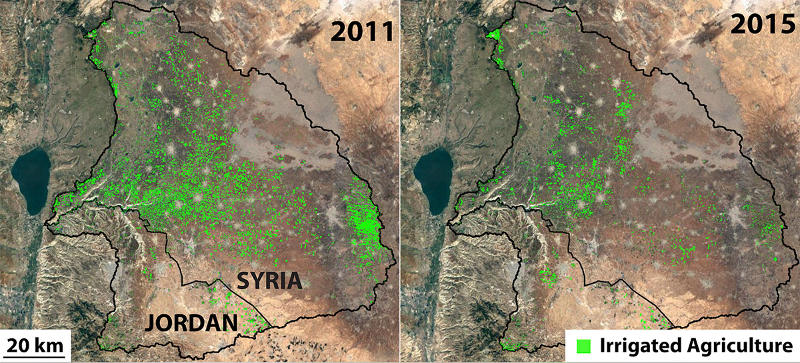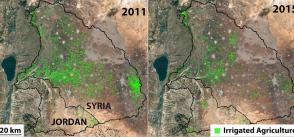
How a flow of people affects the flow of water
Refugee exodus reshapes the Syrian hydrological landscape.
While the human cost of the war in Syria is readily apparent, its ecological and environmental impact has been more difficult to measure.
Using remote data such as satellite imagery, researchers based in the US and Canada have now shown that the flight of Syrian refugees since 2013 has dramatically changed water-use patterns and led to an increased water flow into Jordan through the Yarmouk River.
The study was spurred by an anomalous pattern in data from Jordan’s Ministry of Water and Irrigation, noticed by Stanford researchers working on the Jordan Water Project. “We had noticed a sharp increase in the flow rate of the Yarmouk in 2013, bringing more water in from Syria,” says Stanford’s Marc François Müller, who led the study. “We couldn’t really gather direct data because of the war in Syria.”
Read the full article by Sedeer El-Showk via Nature Middle East.







